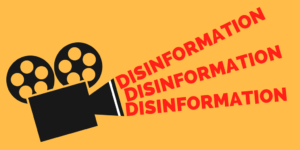 When a Russian official at February’s Munich Security Conference proposed a joint initiative between Russia and the United States on cybersecurity, then-National Security Adviser H.R. McMaster replied, “I’m surprised there are any Russian cyber experts available, based on how active they have been in undermining our democracies across the West,” the New Yorker’s Patrick Radden Keefe reports.
When a Russian official at February’s Munich Security Conference proposed a joint initiative between Russia and the United States on cybersecurity, then-National Security Adviser H.R. McMaster replied, “I’m surprised there are any Russian cyber experts available, based on how active they have been in undermining our democracies across the West,” the New Yorker’s Patrick Radden Keefe reports.
The National Security Strategy written by McMaster’s staff explicitly named Russia and China as malign influences, and declared that the Russians had used technology “to undermine the legitimacy of democracies,” he notes.
The most important public effort to counter Russian disinformation is understaffed, underfunded, and over-extended, Vanity Fair’s Abigail Tracy writes in a must-read account of the Global Engagement Center – “in a sense, Washington’s answer to the Internet Research Agency, the St. Petersburg-based troll factory.”

Credit: CEPA
“[W]hile insiders have praised acting coordinator Daniel Kimmage (right), telling me that there is no better person to lead the effort than the foreign-service officer —who is fluent in both Russian and Arabic, among other languages— one source said he … ‘specifically was seen as an Obama person,’” she notes, adding that the challenge is not personnel, but political:
The problem, according to people familiar with these efforts, is that social media is a relatively new theater of war for the United States—and, potentially, one without any silver bullet. “I still haven’t seen anybody give me a good answer on how to combat disinformation,” said Rick Stengel, who had oversight of the G.E.C. as undersecretary for public diplomacy during the Obama administration.
 Obama-era staffers were flummoxed in 2014, when the Kremlin escalated so-called “special-war” tactics in Ukraine, manipulating the media to muddy international coverage of its invasion of Crimea, Tracy adds:
Obama-era staffers were flummoxed in 2014, when the Kremlin escalated so-called “special-war” tactics in Ukraine, manipulating the media to muddy international coverage of its invasion of Crimea, Tracy adds:
“There was a recognition at the White House that this was different, and that the kind of propaganda . . . that was different from what had been used before,” explained Brett Bruen, a former foreign-service officer who served as the White House director of global engagement from 2013 to 2015. “What was evident to me and to others was that we needed to get to a point where we had more tools that were preconstructed, and ready to deploy when and where they were needed, especially around principal vulnerabilities.” RTWT
 The British Parliament is setting an example for other national parliaments to expose and counter disinformation and influence operations, the European Values think tank adds, by creating “The Russia Co-ordination Group”, consisting of the Chairs of different parliamentary committees, including those dedicated to defence, foreign affairs, internal security, finances and intelligence supervision.
The British Parliament is setting an example for other national parliaments to expose and counter disinformation and influence operations, the European Values think tank adds, by creating “The Russia Co-ordination Group”, consisting of the Chairs of different parliamentary committees, including those dedicated to defence, foreign affairs, internal security, finances and intelligence supervision.
 The proliferation of disinformation – including false news posing as factual stories – became increasingly visible in the context of the crisis in Ukraine, gaining notoriety as a global challenge during the 2016 United States presidential election campaign, notes analyst Naja Bentzen. While the EU is stepping up its efforts to tackle online disinformation ahead of the European elections in 2019, the EU’s myth-busting team is facing criticism, she writes for the European Parliamentary Research Service Blog.
The proliferation of disinformation – including false news posing as factual stories – became increasingly visible in the context of the crisis in Ukraine, gaining notoriety as a global challenge during the 2016 United States presidential election campaign, notes analyst Naja Bentzen. While the EU is stepping up its efforts to tackle online disinformation ahead of the European elections in 2019, the EU’s myth-busting team is facing criticism, she writes for the European Parliamentary Research Service Blog.
The Alliance for Securing Democracy’s Brittany Beaulieu and David Salvo published a policy brief outlining ten legislative steps that Congress can take to defend democracy against interference by foreign actors, including improving election security, improving disclosure requirements for online political advertisements, and creating a public-private fund for media literacy, among others.
The need to support civil society’s response to online threats has increased significantly, note analysts Josh Levy & Katie Gillum. The excellent guides, trainings, and webinars explaining the need for encrypted messaging services, secure email, and protected social media accounts are essential, they add, while suggesting four steps civil society organizations and funders can take, in the Stanford Social Innovation Review:
-

EU Stratcom Task Force
Commit to digital security as essential to all work: The Equifax breach and the Russian interference in US elections are massive reminders that online data is vulnerable to attacks from all quarters. Many funders and civil society organizations know they need to take action, but they don’t know how to do it or who can help. And as civil society begins to notice these gaps, it is important to observe that digital security work takes resources, energy, and focus. Like fiscal responsibility and strong governance, a digital security strategy should be part of any organization’s strategic planning.
- Take big responsibility for big data: The conversation around what researcher Lucy Bernholz calls “digital civil society”—mission-based work conducted online, with all of the attendant benefits and pitfalls—is largely about the growing mountains of data organizations create every day that, like Styrofoam, never disappear. …. One result of the recent Cambridge Analytica
 scandal has been a growing awareness of the ways federal agencies can access seemingly “private” Facebook data to build cases against individuals, including undocumented immigrants, or those in power can wield data to increase their stranglehold over public life….
scandal has been a growing awareness of the ways federal agencies can access seemingly “private” Facebook data to build cases against individuals, including undocumented immigrants, or those in power can wield data to increase their stranglehold over public life….
- Prioritize “capacity building”: Organizations often respond to perceived digital security threats or actual attacks by bringing in a security trainer and/or holding webinars on the basics or on whole new strategies. While this is often the “lowest hanging fruit” when it comes to incident response, all too often trainings and webinars simply aren’t enough. The drawbacks of this “quick fix” are that, as the digital and political world changes and the field of digital security grows, new threats emerge, and the risks to organizations small and large are continually shifting.
- See the shared threat as a call for interdependence: Ultimately, as we take the steps above, we need to shift our thinking to prioritize digital security as a shared, communal responsibility, rather than an individual responsibility or something that only high-risk groups shoulder. The beauty of digital communication and services is that they can help us connect, cut costs, and provide services in ways we couldn’t dream of in past generations. But it also means we are deeply interdependent.







